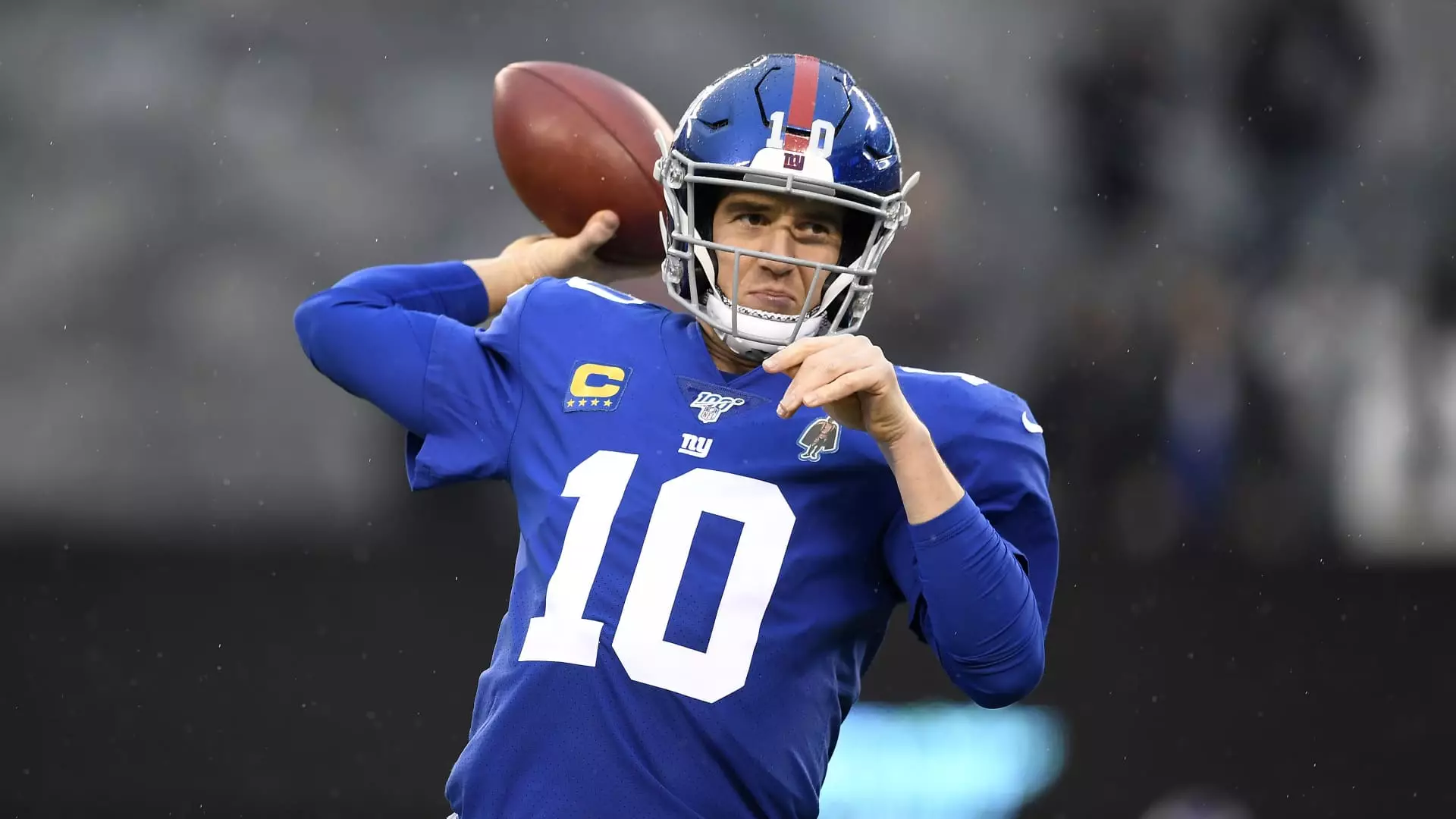In an era where sports franchises are perceived as lucrative investments, the reality behind these valuations often remains obscured by inflated figures and market hype. Former NFL star Eli Manning’s recent public admission—that he cannot afford to purchase a stake in his former team because of sky-high prices—exposes the chasm between perceived value and actual affordability. The notion that owning even a small percentage of a billion-dollar franchise is within reach is increasingly a fantasy, driven more by speculation and market exuberance than by genuine fiscal feasibility. Behind the seductive allure of multibillion-dollar valuations lies a complex web of inflated figures, investor frenzy, and societal narratives that elevate sports teams into symbols of wealth rather than practical investment vehicles.
The Bubble of NFL Valuations and Its Ripple Effect
The explosive escalation of NFL team valuations over recent years is emblematic of a broader cultural obsession with sports franchise ownership as a mark of success or social status. CNBC’s latest figures reveal that teams like the Giants, Eagles, and 49ers—once considered valuable but realistically constrained by market realities—are now valued well beyond their intrinsic worth. This pinpoints a dangerous bubble fueled not by tangible assets or income streams but by an unrelenting bid for status, driven by private equity interests, billionaire investors, and institutional players seeking to capitalize on a seemingly unstoppable bandwagon. Manning’s assessment of a team valuation hitting $10 billion signals an inflationary spiral that risks destabilizing traditional notions of value, turning sports teams into speculative assets that defy common sense and financial logic.
Ownership as a Status Symbol Versus Practical Investment
What Manning’s decision underscores is the stark contrast between the romanticized idea of sports ownership and the sobering reality of affordability. For many, the pursuit of a stake in a team is less about financial return and more about prestige. Yet, when even former players with significant earnings and influence cannot justify the cost—particularly when dealing with conflicts of interest, time commitments, and potential breeding grounds for controversy—it becomes clear that the entire enterprise may be built on illusions of grandeur. Moreover, the notion that a sports franchise can be an income-generating asset is often overstated; the high costs involved in ownership, management, and compliance tend to outweigh the benefits for all but the most deeply entrenched billionaires.
The Societal and Economic Implications
The pervasive inflation of team valuations also has broader societal consequences. It feeds a culture where sports teams are seen as trophies, with their immense value serving as a symbol of wealth and power rather than an enterprise rooted in community, stability, or long-term financial sustainability. This distorted perception influences public policy, community investments, and even local economies, which often prioritize corporate interests over inclusive growth. Moreover, the trend of private equity and ultra-rich investors eyeing team stakes raises questions about the commodification of sports and its role in widening socioeconomic divides. The billionaire obsession with sports teams reveals a desire to cement social capital rather than foster genuine community development—an aspect that should merit closer scrutiny and debate.
Reevaluating the True Worth of Sports Franchises
The phenomenon Manning describes—being priced out of a team—serves as a cautionary tale about the risks of equating market hype with inherent value. It invites a reevaluation of what sports franchises are truly worth. Are they valuable because of their revenue-generating capacity, or are they inflated symbols serving the ambitions of the ultra-wealthy? This disconnect underscores the need for a more grounded assessment of sports assets, emphasizing transparency and fiscal discipline rather than succumbing to the latest valuation trends. As the bubble continues to inflate, the danger lies in detaching these assets from reality, potentially leading to a future where the market collapses under its own weight, leaving less responsible investors and local communities to bear the fallout.



Leave a Reply